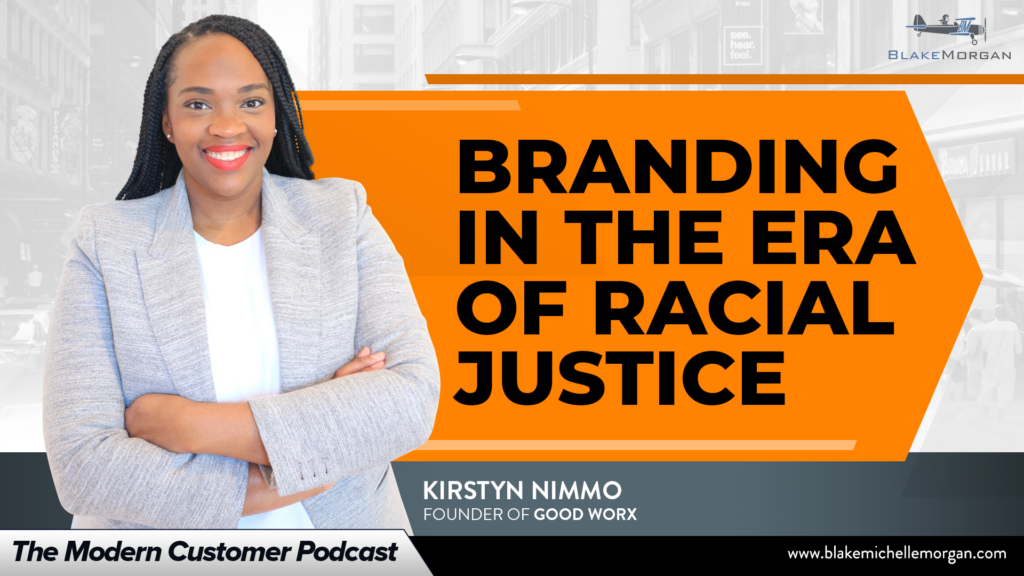2020 changed the world in many ways, including a renewed push for racial justice and equality in the United States. That demand must now be echoed in how companies brand and market their products.
With increased calls for racial justice, Kirstyn Nimmo saw how she could bring her marketing expertise and experiences as a Black woman to help brands act authentically and impact racial equality. Nimmo founded Good Worx and consults numerous big brands on social causes.
Branding in the era of racial justice brings unique challenges, but also new opportunities to connect with customers and make meaningful changes.
A recent example of the need for inclusive branding comes from Aunt Jemima. The company, which is owned by Quaker Oats and PepsiCo, has received complaints for years about its branding and inclusion of a racist stereotype on its packaging. Those complaints grew in 2020 to calls for Aunt Jemima to change its name. Quaker Oats and PepsiCo responded by essentially erasing the history and changing the name to the Pearl Milling Company. Instead of engaging in a conversation with its customers and members of the Black community, it appears the company erased any reference to Black culture from its product.
Nimmo acknowledges that this is a complex issue, but also says that PepsiCo missed the mark. Although there was complicated history around Aunt Jemima, it was also Black representation on a popular product, which is important.
Rather than engaging in conversations with the Black community to understand the history and its significance, many companies take the easy route to delete issues. PepsiCo had the opportunity to evolve into a new brand identity that could have highlighted the Black community and its roots instead of just covering it up.
People don’t want to feel uncomfortable, but in this era of racial justice, those uncomfortable conversations need to happen.
Nimmo has three tips for branding in the era of racial justice:
- Be open to feedback from consumers. Brands need to create channels for feedback and listen to what customers have to say. Use the feedback as a way to connect with people on a deeper level and learn from their experiences.
- Take accountability for what is being called out. Too many brands only change once they face extreme public pressure. Brands need to be brave and acknowledge their past and see how they can change. Instead of ignoring the problem or trying to erase it, brands need to be accountable for their past actions.
- Reverse the harm. Brands should do whatever is needed to realize how their actions have harmed people. Nimmo says brands need to reverse the harm by swinging the pendulum the other way to create equity and equality.
This new era of racial justice is more than a passing phase—it is a lasting push for equality. Brands need to realize the importance of the current issues and listen to their customers from all backgrounds to successfully lead representation and change.
Links to further resources mentioned in the show:
How the Aunt Jemima Rebrand Missed the Mark Kirstyn Nimmo’s article
Uncle Ben – Saturday Night Live skit
Aunt Jemima CANCELLED, Replaced With “Pearl Milling Company” with Anthony Brian Logan
Blake Morgan is the bestselling author of The Customer of the Future. Sign up for her new course here.
For regular updates on customer experience, sign up for her weekly newsletter here.

